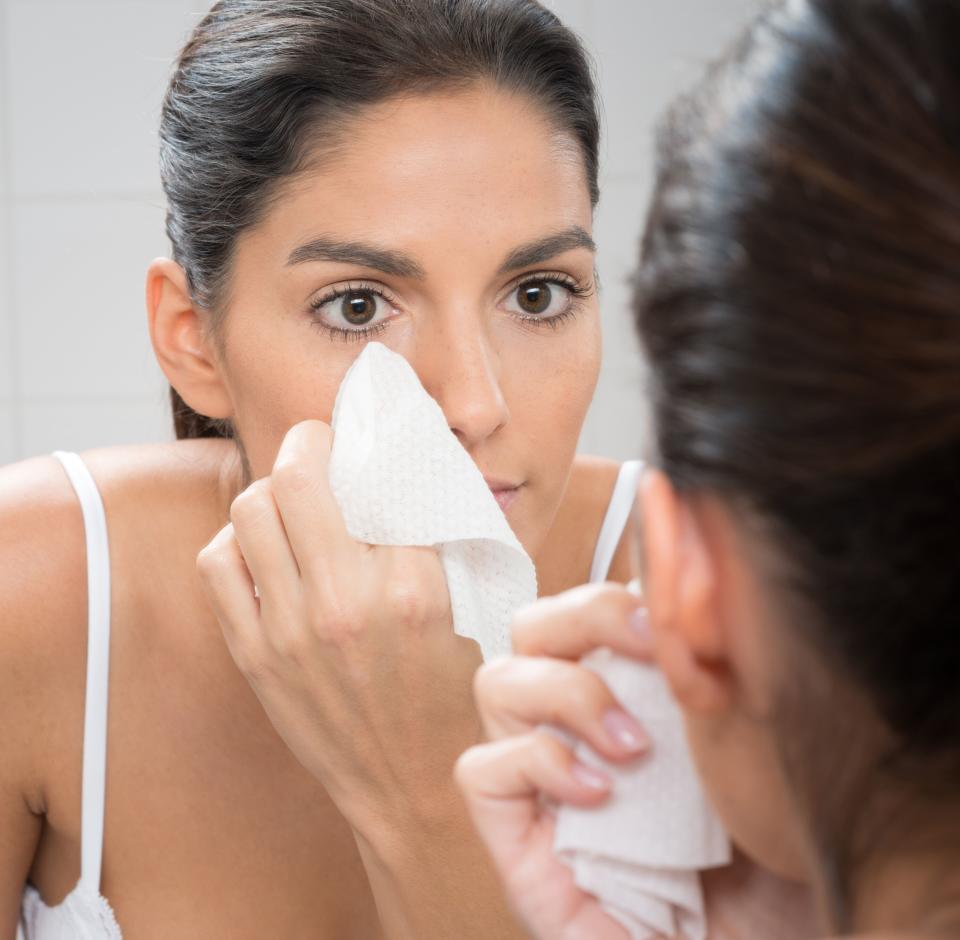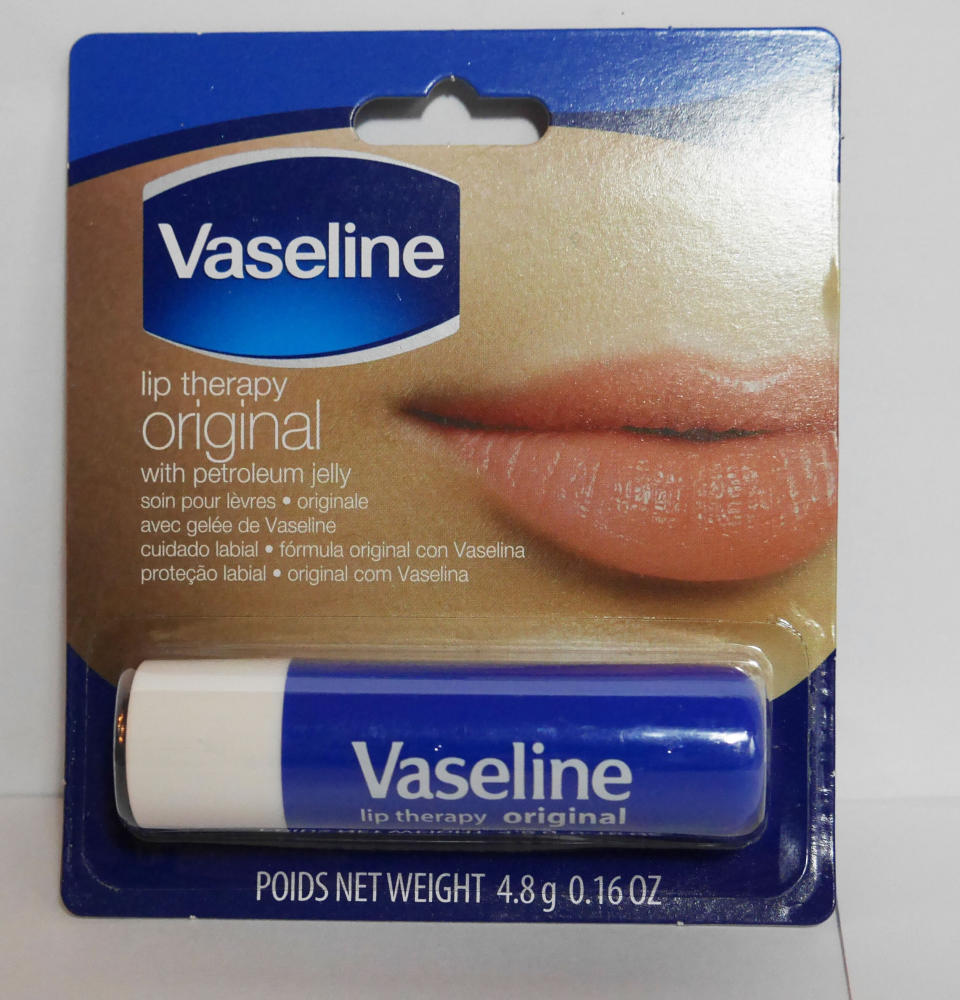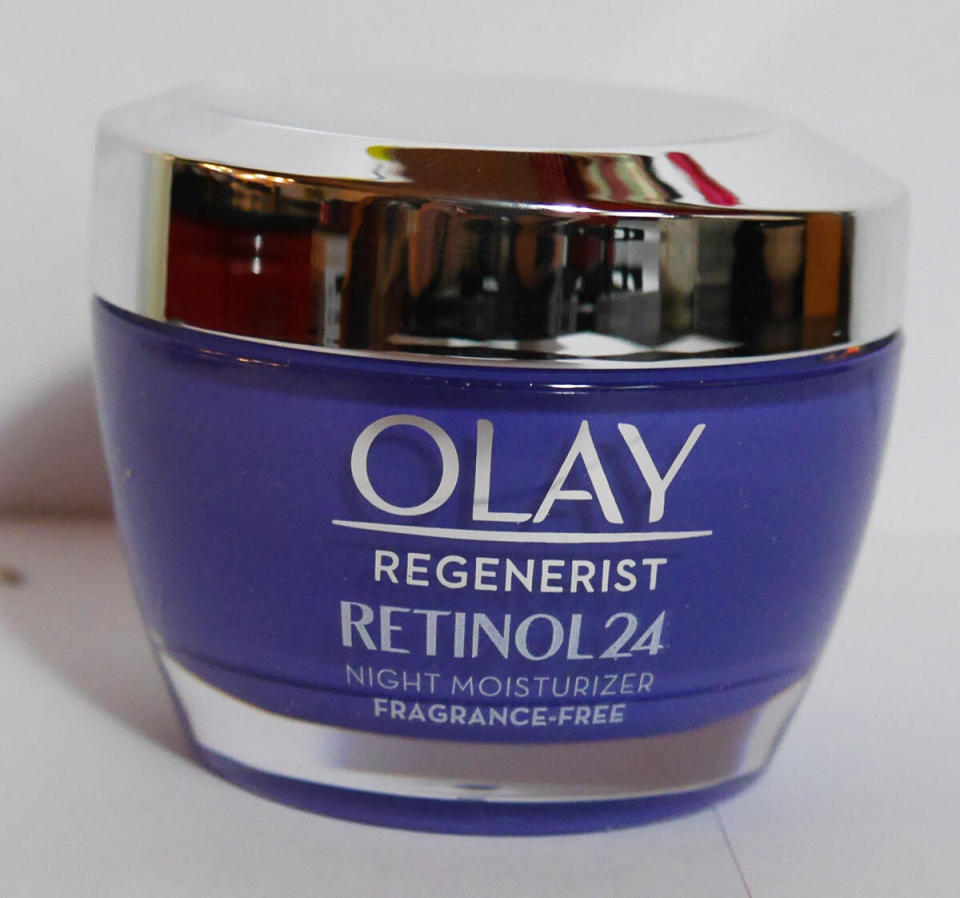How Often Do You Really Need To Wash Your Face?
Handwashing has gotten all the attention lately (and rightfully so) because of the coronavirus pandemic, but with notables like singer Shawn Mendes and Sen. Elizabeth Warren saying they don’t wash their faces, the old twice-a-day rule has started coming into question.
The pop star prefers to “meditate a lot” because he believes “if you’re happy, you won’t break out!” The glowing former Democratic presidential candidate uses Pond’s moisturizer but told Cosmopolitan, “I never wash my face.” And actor Kristen Bell told Elle she cleanses only once a day, at night, since she doesn’t “want to strip my own natural oils in the morning by washing.”
Before diving into how often you should wash, we need to start by defining what cleansing actually means.
“When we’re talking about facial cleansing, we’re typically talking about using a cleanser in addition to water,” Nada Elbuluk, a dermatologist at Keck Medicine of USC and a clinical assistant professor of dermatology at the University of Southern California, told HuffPost. “Something that’s going to help with removing the oil and dirt and things that build up on the face over the day, which water alone is not going to do sufficiently.”
What happens when you don’t wash your face at all?
When you completely abstain from face washing, New York and New Jersey dermatologist Meghan Feely warned that “not cleansing may result in acne, particularly after a day at the beach or following a workout, or for those who wear helmets or hats and may notice acne on the forehead if sweat is not rinsed off.”
Even if you’re not sweating, day-to-day life puts you in contact with elements that clog pores, and those elements should be removed regularly. “As we sleep and over the course of the day, oils and dead skin cells build up on our skin,” Feely explained. “Throughout the day, we are also exposed to environmental pollutants.”
Those pollutants “could be infectious, like bacteria or viruses,” Elbuluk said. “It could be allergens, it could be dirt, it could be all types of things, but things that we don’t want to have prolonged contact with our skin. Healthy skin is skin that is cleansed of those kinds of things. ”
Elbuluk noted that leaving residual makeup, dirt and/or oil behind makes it hard for products like sunscreen to be effective. “Those products can’t penetrate as well if your skin isn’t clean because you have a coat of something on it,” she said. “You decrease the efficacy of those things.”
However, our skin does naturally exfoliate in the long run. “We are all like snakes and the skin turns itself over every 21 days,” New Jersey dermatologist Rebecca Baxt told HuffPost. “That happens naturally.”
What if I just use makeup wipes?
Makeup wearers, like actor Sarah Hyland, might rely on makeup wipes, which she told InStyle are “a Godsend. ... That’s what I use on a daily basis. I don’t wash my face, I just do that.”

“Sometimes [makeup wipes] are good to get the first layer off,” Baxt said. “But I prefer washing with a mild soap or cleanser with cool to warm water with fingertips as opposed to makeup wipes. Those wipes have chemicals in them — that’s why they’re able to stay preserved in a sealed container. There are people who get allergic to that.”
Elbuluk recommends that makeup wipe users still cleanse after using them. “They’re not doing all the same things as a cleanser, which has specific biochemical properties to remove all the dirt and oil off your face,” she said. “Wipes alone are typically not sufficient.”
How often you should wash depends on your skin type.
For those who already get acne, Baxt suggests they “wash their face at least twice a day,” while someone with combination skin will “probably be well enough washing once a day.”
The same goes for people with dry skin. Dermatologist Steven Xu said they “can overdo it” by washing with a cleanser too often. “Cleansers strip away the top of your skin and some of the natural oils your body makes,” the assistant professor of dermatology at Northwestern University Feinberg School of Medicine tells HuffPost. “That can be bad in the context of people with dry or sensitive skin.”
Aging skin tends to be more dry, too, and doesn’t require being washed twice a day. “As you get older, you stop making natural moisturizers that young skin does,” Xu said. “So cleaners can be extra harsh on skin that’s a little bit more weathered.”
He added, “People who don’t wear a lot of makeup and don’t put [products] on their face and don’t really get oily, that’s the kind of skin type that doesn’t necessarily need to be washing their face religiously.”
Elbuluk said overwashing can cause dryness, too: “Using an actual cleanser is not needed more than twice a day,” she said. “For people who wash more than twice a day, it tends to over-dry the face without adding any additional benefit.”
What you wash with matters.
Basically, there’s no “hard and fast rule when it comes to frequency of face washing,” Xu said. “It all depends on your skin type and what you’re washing your face with.”
The choice of a cleanser will be guided by your skin type. “If you have sensitive skin, you can select a gentle, non-alcohol-based cleanser,” Feely said. “If you have acne-prone skin, you may choose one with ingredients like salicylic acid or benzoyl peroxide.”
Elbuluk recommends cleansers from brands like Dove, Cetaphil or Cerave. “Those are good ones for sensitive or regular combination-type skin,” she said. “Try to keep it simple: A mild gentle cleanser is usually sufficient for most people.”
Baxt “has no problem” with people with dry skin using oil cleansers, but she doesn’t endorse them for those who regularly get acne or already have oily skin. “I’m not a believer in, if you’re oily, put more oil on your skin,” she said. “I don’t have a problem with an oil cleanser if you have dry skin, but if you’re acne prone, I’m not a fan.”
So just like every body is different, so is every face. “Washing your face,” Baxt said, “really depends on what kind of skin you have.”
Related...
How To Cut Your Own Hair, If You Absolutely Must
How To Color Your Hair At Home And Mistakes To Avoid
Is Your Beard Putting You And Loved Ones At Risk For Coronavirus?
Also on HuffPost
Sunscreen: Laroche-Posay Melt In Sunscreen Milk

Sunscreen: Isdin Eryfotona Actinica

Sunscreen: Drunk Elephant Umbra Sheer

Sunscreen: Supergoop Zinc Sunscreen

Lip Balm: Vaseline Lip Therapy

Anti-Aging: Differin Adapalene

Anti-Aging: Oil of Olay Regenerist Retinol 24

Oil of Olay Regenerist Retinol24 , $39
Anti-Aging: SkinCeuticals Retinol 0.3 Cream

Face Wash: Neutrogena Pink Grapefruit Cream Cleanser

Saedi likes this face wash because it has salicylic acid, which helps break up things that clog your pores. “I feel like the grapefruit kind of brightens your skin a bit,” she added.<br><br> Neutrogena Pink Grapefruit Cream Cleanser, $9
Face Wash: PanOxyl Acne Creamy Wash

Love HuffPost? Become a founding member of HuffPost Plus today.
This article originally appeared on HuffPost.

